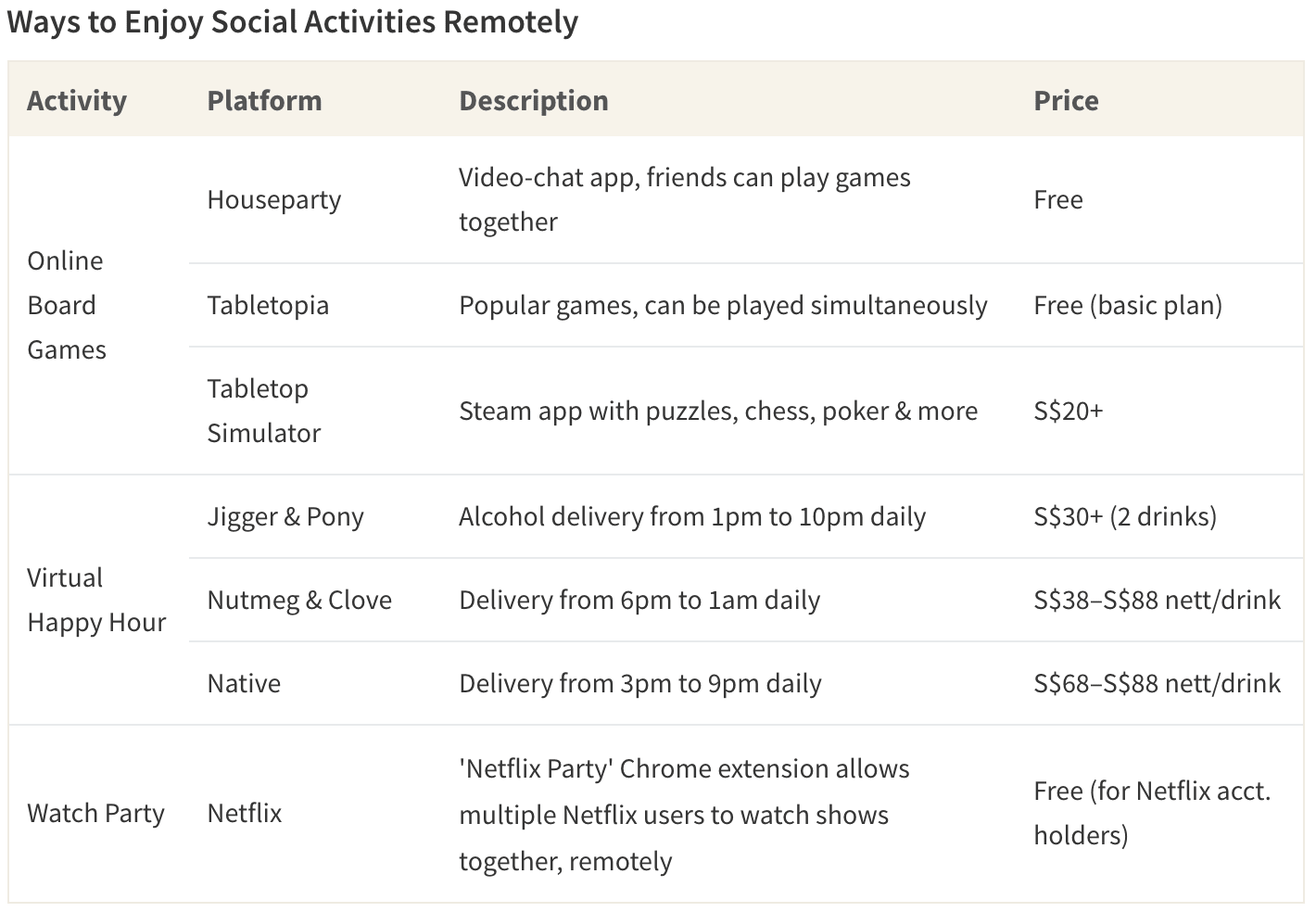3 Work From Home Myths That Can Do More Harm Than Good
If you are currently working from home during the circuit breaker, consider yourself one of the lucky ones. You are still getting an income but you're not risking your health being on the frontlines. However, despite the positives of your situation, it's likely you may not feel as lucky. The COVID-19 pandemic has caused an unprecedented increase in anxiety, depression and other mental health concerns. In contrast to what some people may believe, people working from home are not immune to those feelings. To make matters worse, it is commonly believed that employees who work from home are less productive and should be available 24/7. Now more than ever, this is a dangerous mindset to have, as the absence of face-to-face interaction and increased stress can lead to a burnt out workforce. Below, we break down some of the most common myths surrounding working from home, how these myths can promote an unhealthy work culture and how to adjust accordingly.
Myth 1: Remote Workers Slack Off At Home
One of the most common things that managers worry about when one of their employees works from home is that productivity will plummet. Employees getting distracted with Netflix, doing household chores and generally slacking off is an image that perpetually remains in the skeptical manager's mind. However, it's simply not true that working from home leads to a less productive workforce. A Stanford study found that people who worked from home actually had a 13% performance increase, took shorter breaks and were able to concentrate better.
However, during the pandemic, things are a bit different. Workers were thrown into a work-from-home environment without choice. They don't get their own private room to work from. For workers who prefer an office environment, the stress that they have to adjust to a new environment, coupled with a manager who believes they won't perform adequately can put undue emotional distress. Now, not only has their work environment changed but now they'll have to overcompensate to prove to their bosses that they can perform at their normal levels, further increasing stress and anxiety. At the core, this myth stems from a lack of trust. Employees who feel their bosses don't trust them feel demotivated and micromanaged — the last things they should be feeling during a global crisis. If you're a manager, trust that your employees will do the job that they were hired to do. Productivity loss may happen, but chances are, it will stem from external forces that the employee may not be able to control.
Myth 2: Working From Home Means You Are Available 24/7
Singapore is already one of the hardest working nations in the world. Furthermore, with increasing connectivity, many Singaporeans stay logged into work round the clock. This is mainly due to the perception that your response rate is tied to your performance, which makes employees and bosses alike feel pressure to answer emails and take calls at any time of day. Now that we are working from home, the line between work and home is blurred even further. During this crisis, you may feel like you always need to be online and connected to show your manager that you are working at 100% capacity despite being at home.
However, being available 24/7 can lead to burnout and a loss of productivity. Burnout may lead to serious psychological ramifications. Cross-sectional studies have shown that burnout leads to increased alcohol consumption, stress, depression and physical pain.
With employees already feeling increased levels of stress and depression, adding in the potential for burnout by keeping them connected to work 24/7 can exacerbate these issues. Down the line, this type of chronic stress and mental exhaustion can also lead to serious health problems like heart disease. It can also result in millions of dollars of lost productivity. Lastly, while it's bad for your employees, it's also bad for the bottom line. The World Health Organisation estimates that depression and anxiety costs the global economy US$ 1 trillion per year in lost productivity. To mitigate this, you should set a clear workday schedule and log off your work-related apps.
Myth 3: Working From Home Will Break Down Company Culture
As a boss, you've worked hard to create the best environment for your employees. You strived to create a company culture that fosters creativity, independence, innovation and success. With your employees working at home, you may be worried that your company culture may suffer. However, that may not be the case, as there are plenty of ways to maintain your current company culture. You should start by enforcing your existing company's culture by writing it down and sending it out to your employees. Make sure it is inspirational, clear and well-written. You can also foster teamwork and engagement by creating virtual happy hours where your employees can play games together or just reconnect. You can also send out information about community relief efforts your employees can participate in from home if your company culture includes giving back to the community.

Furthermore, rather than thinking about how working from home will damage your company's work culture, you should think about adjusting your company culture to the "new normal". This includes keeping open a line of communication and being clear in your expectations for your employees. Thus, while it will take more effort to maintain your company's culture, it is certainly not impossible. In fact, this difficult time can be a great way to see how your company's culture can improve.
Empathy, Trust & Open Communication is Key
Whether you are an intern, mid-level manager or a CEO, you will most likely be feeling the same emotions as your colleagues. Empathy is crucial during this time, regardless of your rank. Just as an employee may be feeling stressed out and frustrated, so too are the CEOs and managers. If you're a manager, you should be aware of how the current situation affects your employees mental health and adjust your strategy accordingly. This may include being a little more flexible with employee schedules, being there for your employees if they're feeling overwhelmed and being open to suggestions from employees who are struggling in the current situation. Most importantly, it's crucial to trust your employees and not fall prey to hidden biases and misconceptions.
It's important for employees to do their part as well. You should maintain an open line of communication and keep your manager updated on your progress. You'll need to be honest with your manager or HR if you're feeling overwhelmed. A good company will help you cope during this period. Furthermore, everyone should take the time to unwind after work. Tackle a new project, exercise, spend quality time with your family and shut down your work laptop. Lastly, make sure you a financial plan (including insurance) in case you get sick and need to take time off work. The companies who take this crisis as an opportunity to learn, adapt and grow are the ones who will end up reaping long-term rewards.

